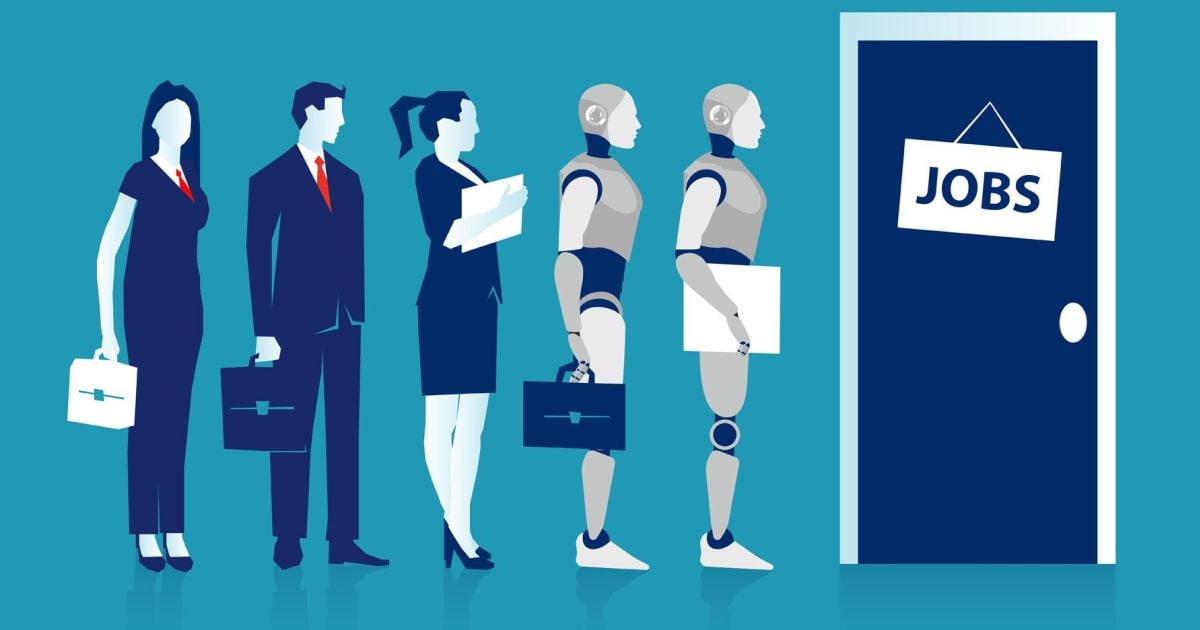Artificial intelligence (AI) has been a topic of discussion and concern for many years, particularly in relation to the impact it could have on the job market. While AI has the potential to revolutionize many industries and bring significant benefits to society, some experts have warned that it could also lead to widespread job loss, particularly in industries where tasks are routine and repetitive. In this article, we will examine the impact of AI on jobs, including its potential to contribute to a recession.
The potential impact of AI on jobs has been a subject of debate for many years. On one hand, AI has the potential to create new jobs and transform existing industries. For example, in the healthcare industry, AI is being used to help diagnose diseases and develop new treatments. In the transportation industry, self-driving cars and trucks could create new jobs for engineers, technicians, and maintenance workers. In the retail industry, AI-powered chatbots and virtual assistants can help customers find what they are looking for and provide personalized recommendations, potentially creating new jobs for customer service representatives.
On the other hand, many experts have warned that AI could lead to widespread job loss, particularly in industries where tasks are routine and repetitive. For example, in the manufacturing industry, AI-powered robots can perform tasks such as assembly and packaging more efficiently than humans, potentially leading to job loss for factory workers. In the financial industry, AI-powered algorithms can perform tasks such as risk assessment and fraud detection more quickly and accurately than humans, potentially leading to job loss for analysts and other financial professionals.
Furthermore, the impact of AI on jobs could be exacerbated during times of economic downturn, such as a recession. During a recession, companies may be more likely to invest in AI to automate tasks and reduce costs. This could lead to widespread job loss in industries where tasks are routine and repetitive, exacerbating the impact of the recession.
However, it is important to note that the impact of AI on jobs is not all negative. While some jobs may be lost, new jobs could also be created as AI creates new industries and transforms existing ones. For example, in the healthcare industry, the use of AI could lead to the creation of new jobs for data scientists, software developers, and other professionals who specialize in AI and machine learning. In the transportation industry, the development of self-driving cars and trucks could create new jobs for engineers, technicians, and maintenance workers.
Moreover, the impact of AI on jobs will likely depend on the type of AI being used. Narrow AI, which is designed to perform a specific task, is more likely to automate routine and repetitive tasks, potentially leading to job loss. However, general AI, which is designed to perform a wide range of tasks and can learn from experience, could create new opportunities for human workers.
In conclusion, the impact of AI on jobs is a complex and multifaceted issue. While AI has the potential to create new jobs and transform existing industries, it could also lead to widespread job loss, particularly in industries where tasks are routine and repetitive. During times of economic downturn, such as a recession, the impact of AI on jobs could be exacerbated. However, it is important to note that the impact of AI on jobs is not all negative, and new jobs could be created as AI creates new industries and transforms existing ones. As AI continues to develop and become more prevalent, it will be important for policymakers, businesses, and workers to understand its potential impact on the job market and take steps to mitigate any negative consequences.
Will AI completely replace human workers?
No, AI is not likely to completely replace human workers in the near future. While AI can perform some tasks more efficiently than humans, there are still many tasks that require human skills such as creativity, problem-solving, and emotional intelligence. Furthermore, AI is still limited by its programming and cannot adapt to new situations or tasks without being specifically programmed to do so.
Will AI create more jobs than it eliminates?
It is difficult to predict whether AI will create more jobs than it eliminates. While AI has the potential to create new industries and transform existing ones, it could also lead to widespread job loss in industries where tasks are routine and repetitive. The impact of AI on jobs will likely depend on the type of AI being used and the industries in which it is being implemented.
How can workers prepare for the impact of AI on jobs?
Workers can prepare for the impact of AI on jobs by developing skills that are in demand in industries that are likely to benefit from AI, such as data science, software development, and machine learning. Furthermore, workers can focus on developing skills that cannot be easily replicated by AI, such as creativity, problem-solving, and emotional intelligence.
What role do policymakers have in mitigating the impact of AI on jobs?
Policymakers can play a role in mitigating the impact of AI on jobs by investing in education and training programs that help workers develop the skills needed to succeed in a rapidly changing job market. Additionally, policymakers can support initiatives that promote the ethical development and implementation of AI, such as guidelines for AI transparency and accountability.
Will AI contribute to a recession?
AI itself is not likely to contribute to a recession. However, during times of economic downturn, such as a recession, companies may be more likely to invest in AI to automate tasks and reduce costs, potentially leading to widespread job loss in industries where tasks are routine and repetitive. The impact of AI on jobs during a recession will likely depend on the severity of the recession and the industries in which AI is being implemented.
